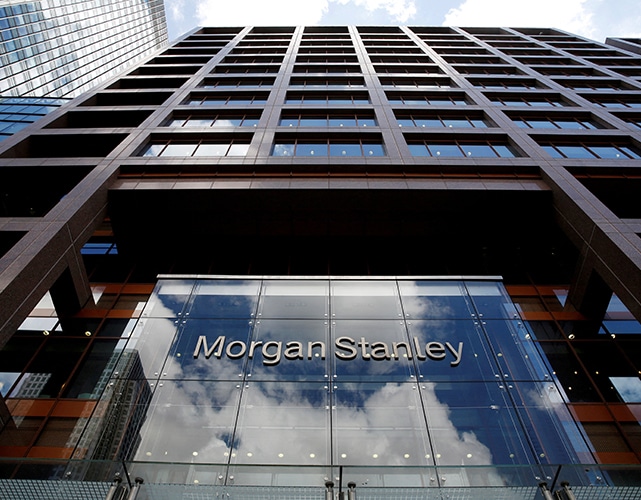Recent action in the U.S. stock market suggests investors are beginning to price in a “no landing” economic scenario that involves an expected pickup in growth, Morgan Stanley equity strategists said April 8.
For months, investors have been bracing for a “soft landing” for the economy, which sees tepid growth alongside inflation falling from high levels.
“However, the macro data and equity market leadership have started to support the no landing outcome,” Morgan Stanley strategists led by Michael Wilson said in a note.
Strong economic data and firmer-than-estimated inflation reports have also reduced expectations for Federal Reserve interest rate cuts. Traders in fed fund futures on April 8 were betting on a total of 62 basis points of rate cuts this year, down from January estimates of 150 basis points.
Sectors often linked to economic growth, such as financials, energy and industrials, have all put up strong performances so far this year, topping the S&P 500’s 9% rise in 2024, while materials — another economically sensitive group — has also performed well.
This strength contrasts with last year, when a narrow group of megacap tech and growth stocks accounted for the bulk of the index’s gains.
“This broadening is being led by cyclical industries… which is supportive of the notion that the equity market is beginning to process a better growth environment,” Morgan Stanley said in the note.
While cyclically sensitive stocks and sectors have started to outperform, quality remains a key attribute for the leaders, the Morgan Stanley strategists noted.
The emphasis on quality “makes sense in the context of what is still a later cycle rather than an early cycle reacceleration in growth,” they said.
If the growth pickup was early cycle, there would be more persistent outperformance by small-cap stocks and lower quality cyclicals, Morgan Stanley said.
The small-cap Russell 2000 is up only 2.4% this year.
The direction of Treasury yields could also play a role in how economically sensitive parts of the market perform, Morgan Stanley said. The 10-year Treasury yield was last at 4.42%, above the 4.35% level at which Morgan Stanley previously said stocks could become more sensitive to yields.
While downside in yields could prompt rotation to a broader group of cyclicals, “a break higher in yields could take us back into a narrow market regime,” the strategists said.
This article was provided by Reuters.







